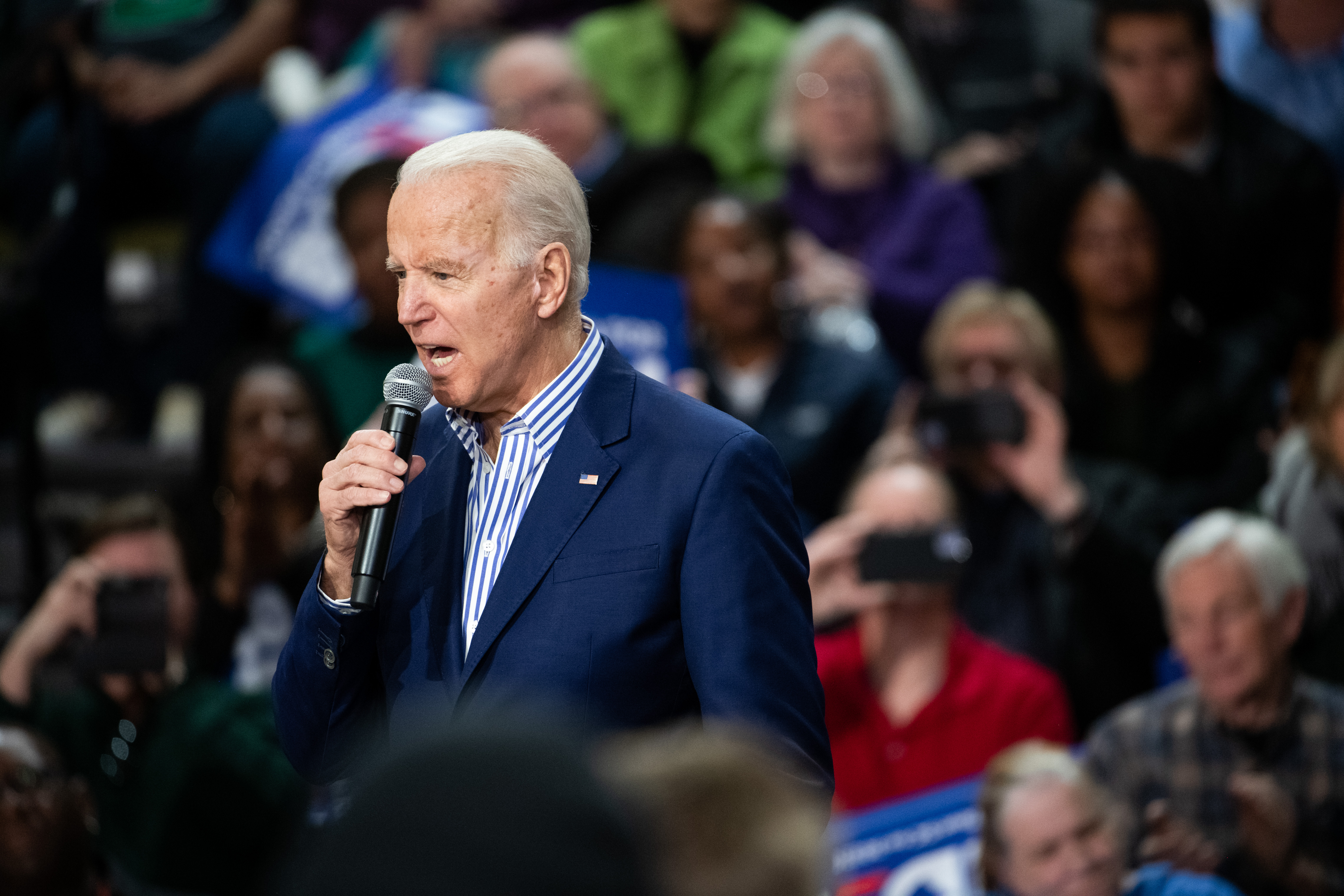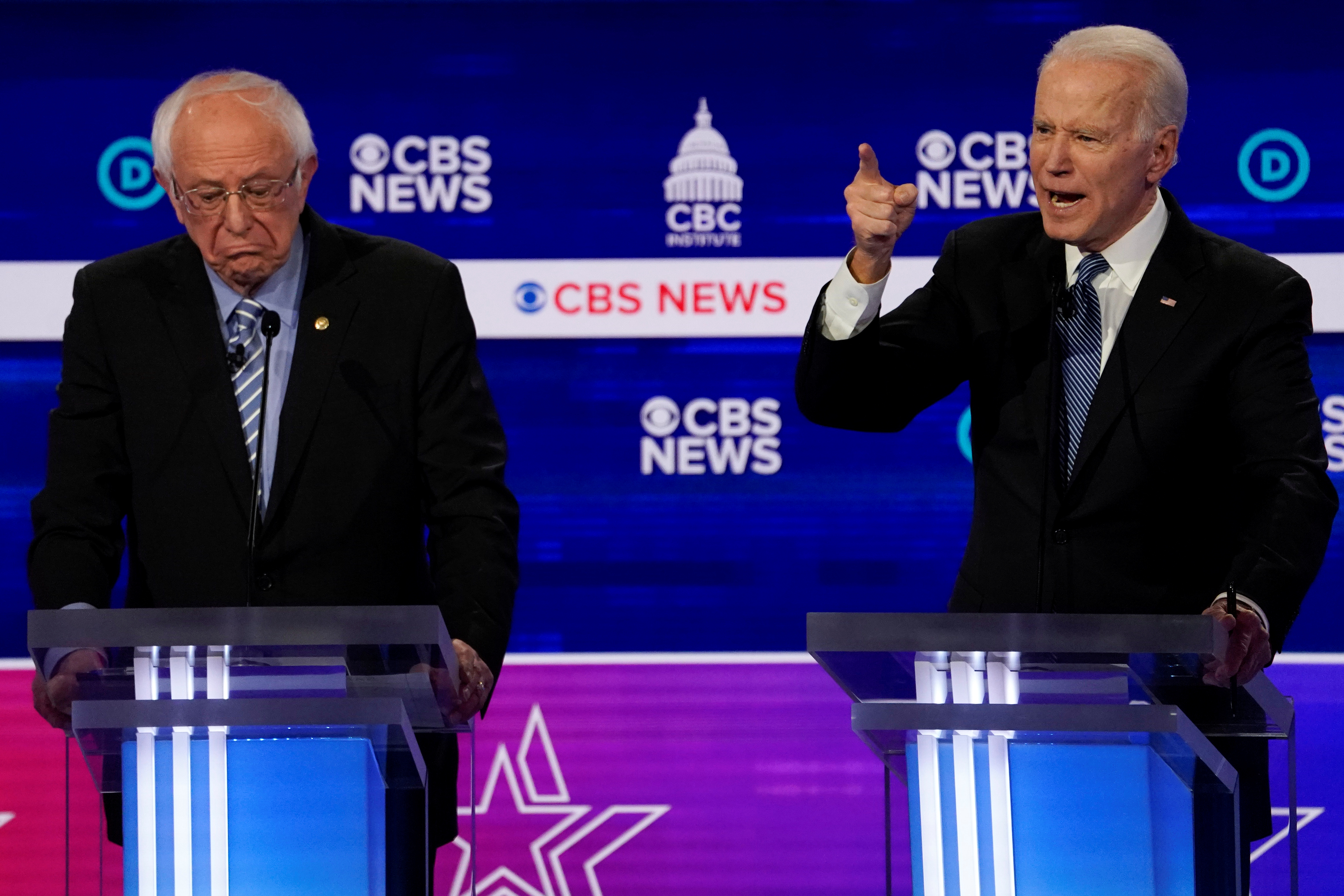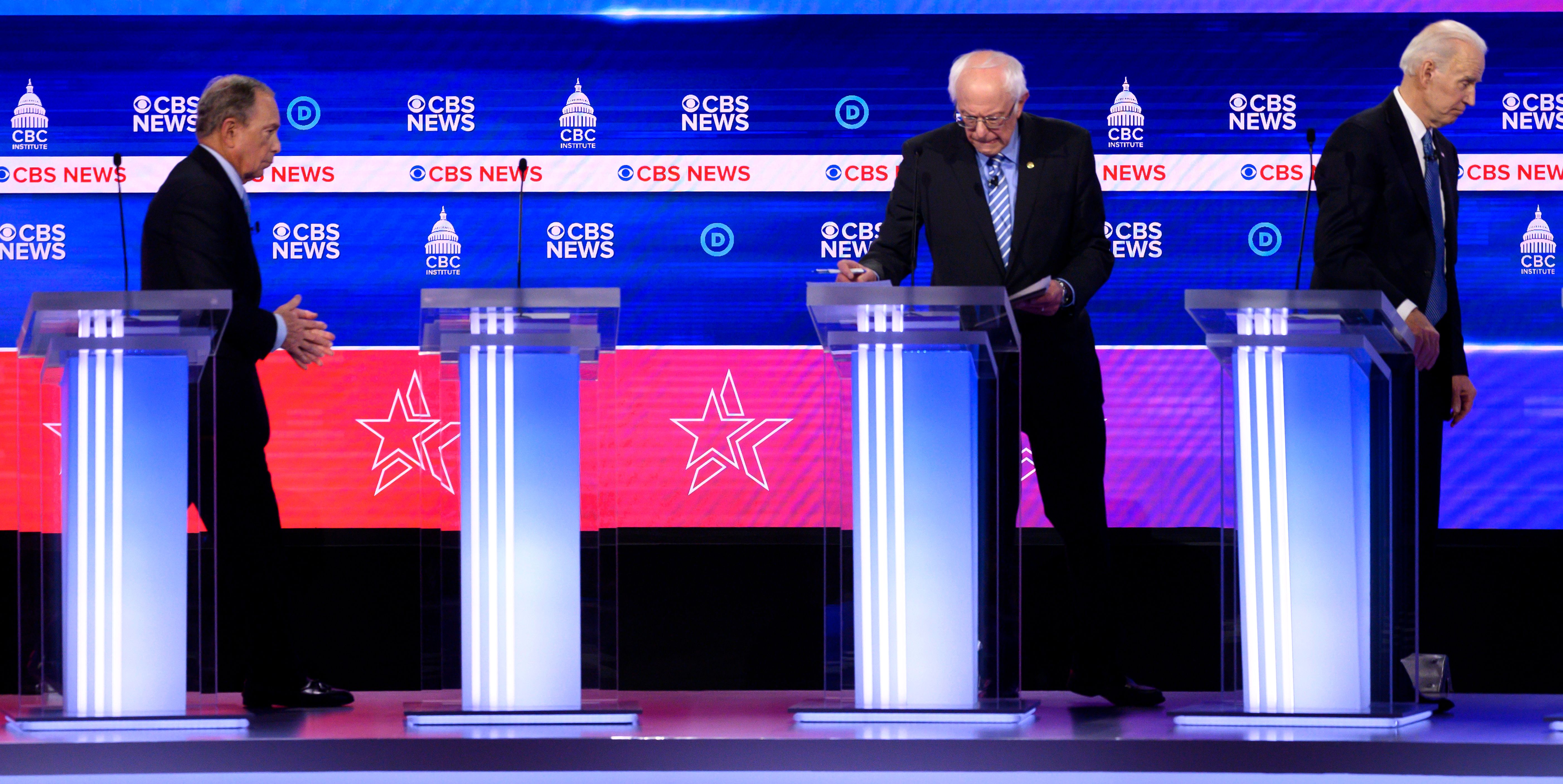A third of the pledged delegates in the Democratic primary are up for grabs Tuesday as candidates are beginning to end their campaigns with polling showing what appears to be a two-man race.
In total, 14 states will vote — a day commonly referred to as “Super Tuesday.” About 4 percent of delegates have been distributed so far, with Independent Vermont Sen. Bernie Sanders winning 60 and former Vice President Joe Biden winning 53. (RELATED: GOP Operatives Are Making A Big Move For Moderate Voters In Blue States As Sanders Makes Gains)
Karlyn Bowman, a senior fellow at the American Enterprise Institute who studies polling data, said in an interview that Super Tuesday results will be difficult to predict due to the rapid news cycle and differing populations of the states.
“Demographics will be huge,” she told the Daily Caller. “These states have very different demographics, which I think makes Super Tuesday so special.”
The two states with the most delegates Tuesday — California and Texas — each have a Latino population of about 40 percent, a factor Bowman said will likely help Sanders, who polls better than any candidate with Latinos. Sanders holds about a 15 percent lead in California and a six-point lead in Texas.
North Carolina, the state with the third most delegates Tuesday, appears to be a tight race with mixed polling. Biden holds a slight lead according to the Real Clear Politics average, although a new High Point University poll released Monday shows Sanders holding a 13 percent lead.
North Carolina had a 136 percent increase in Latinos from 2000-2014, according to the Pew Research Center.
Virginia, too, appears to be a tight race between Biden and Sanders, with polling showing mixed results.

SPARTANBURG, SC – FEBRUARY 28: Democratic presidential candidate former Vice President Joe Biden addresses a crowd during a campaign event at Wofford University February 28, 2020 in Spartanburg, South Carolina. South Carolinians will vote in the Democratic presidential primary tomorrow. (Photo by Sean Rayford/Getty Images)
Additional states that will be voting include Alabama, Arkansas, Colorado, Maine, Massachusetts, Minnesota, Oklahoma, Tennessee, Utah and Vermont.
Poll closing times vary from 7 pm to 11 pm EST. Many states take days and even weeks to award the exact amount of delegates. Candidates must win at least 15 percent of the vote in a state to receive delegates.
Smaller states voting Tuesday — such as Tennessee and Alabama — have limited polling data, something Bowman said can be attributed in part to the demise of local newspapers across the country. Polling can be expensive, so she said some newspapers save their money to focus on polling for the general election. (RELATED: Biden Appears To Forget Declaration Of Independence During Campaign Stop)
John McLaughlin, who works on President Donald Trump’s 2020 polling team, said in an interview that Super Tuesday will be the first deep look into just how strong the divide is between the Sanders-led progressive wing and Biden-led establishment wing of the Democratic Party.
“Tomorrow is very important because either the establishment stops Sanders or he cruises to the nomination,” he told the Caller. “The divide in the Democratic party is for real. Sanders is the frontrunner and it’s created panic in the Democratic establishment.”

Democratic 2020 U.S. presidential candidates Senator Bernie Sanders and former Vice President Joe Biden participate in the tenth Democratic 2020 presidential debate at the Gaillard Center in Charleston, South Carolina, U.S. Feb. 25, 2020. REUTERS/Jonathan Ernst
Another potential flaw in Super Tuesday polling is the plethora of breaking news days before the voting booths open. Biden outperformed his expected win in South Carolina Saturday with nearly 50 percent of the vote. Billionaire Tom Steyer dropped out in response to his disappointing showing in South Carolina.
Former South Bend Mayor Pete Buttigieg ended his campaign on Sunday and it was widely reported Monday that he would endorse Biden. Democratic Minnesota Sen. Amy Klobuchar, whose state votes Tuesday, dropped out Monday and is reportedly expected to endorse Biden, according to the Associated Press. (RELATED: Amy Klobuchar Will Drop Out, Endorse Joe Biden)
“The Democratic establishment is giving its all to prop up Biden,” McLaughlin told the Caller.
Bowman said it is highly unlikely for any sort of polling to be released before Tuesday that accurately reflects potential changes in response to the news cycle. She said it’s possible that Biden could get a boost, especially from former Buttigieg supporters.
“We know his supporters are more moderate so they should prowl to Biden,” she told the Caller.
The only remaining candidates who poll better than 5 percent nationally include Sanders, Biden, billionaire Michael Bloomberg, and Democratic Massachusetts Sen. Elizabeth Warren.
Bloomberg is polling around 15 percent in North Carolina and Virginia, along with 20 percent in Oklahoma and Arkansas, meaning he could potentially rally enough delegates to compete in the race moving forward.

Democratic presidential hopefuls (from L) former New York Mayor Mike Bloomberg, Vermont Senator Bernie Sanders and former Vice President Joe Biden walk away from the podiums during a break in the tenth Democratic primary debate of the 2020 presidential campaign season co-hosted by CBS News and the Congressional Black Caucus Institute at the Gaillard Center in Charleston, South Carolina, on February 25, 2020. (Photo by JIM WATSON / AFP) (Photo by JIM WATSON/AFP via Getty Images)
Warren is polling evenly with Sanders in her home state of Massachusetts.
McLaughlin said that Bloomberg’s performance tomorrow is difficult to predict, as it will be his first time competing at the polls.
“Bloomberg is holding votes that Biden wants and Warren is holding votes that Sanders wants,” McLaughlin told the Caller.
If a candidate is unable to win 1,991 of the 3,979 pledged delegates, there will be a brokered convention, meaning Democratic superdelegates will have the opportunity to decide the winner in the second ballot.
In 2016, Democratic superdelegates were able to vote in the first ballot, skewing the election in favor of Hillary Clinton, which sparked outrage from Sanders supporters and led the Democratic National Convention to move the superdelegate voting to the second ballot for the 2020 election. (RELATED: Here’s How The DNC Is Trying To Railroad Bernie Sanders)
Biden said on CNN’s State of the Union Sunday that he would still compete for the nomination if Sanders wins the majority of delegates but falls short of the 1,991 threshold.
McLaughlin said a brokered convention is “possible but unlikely.”
Bowman said talks of a brokered convention are for the most part premature and fueled by excitement within the national media.
“If it’s a two-man race, we probably won’t see a brokered convention,” she told the Caller.


